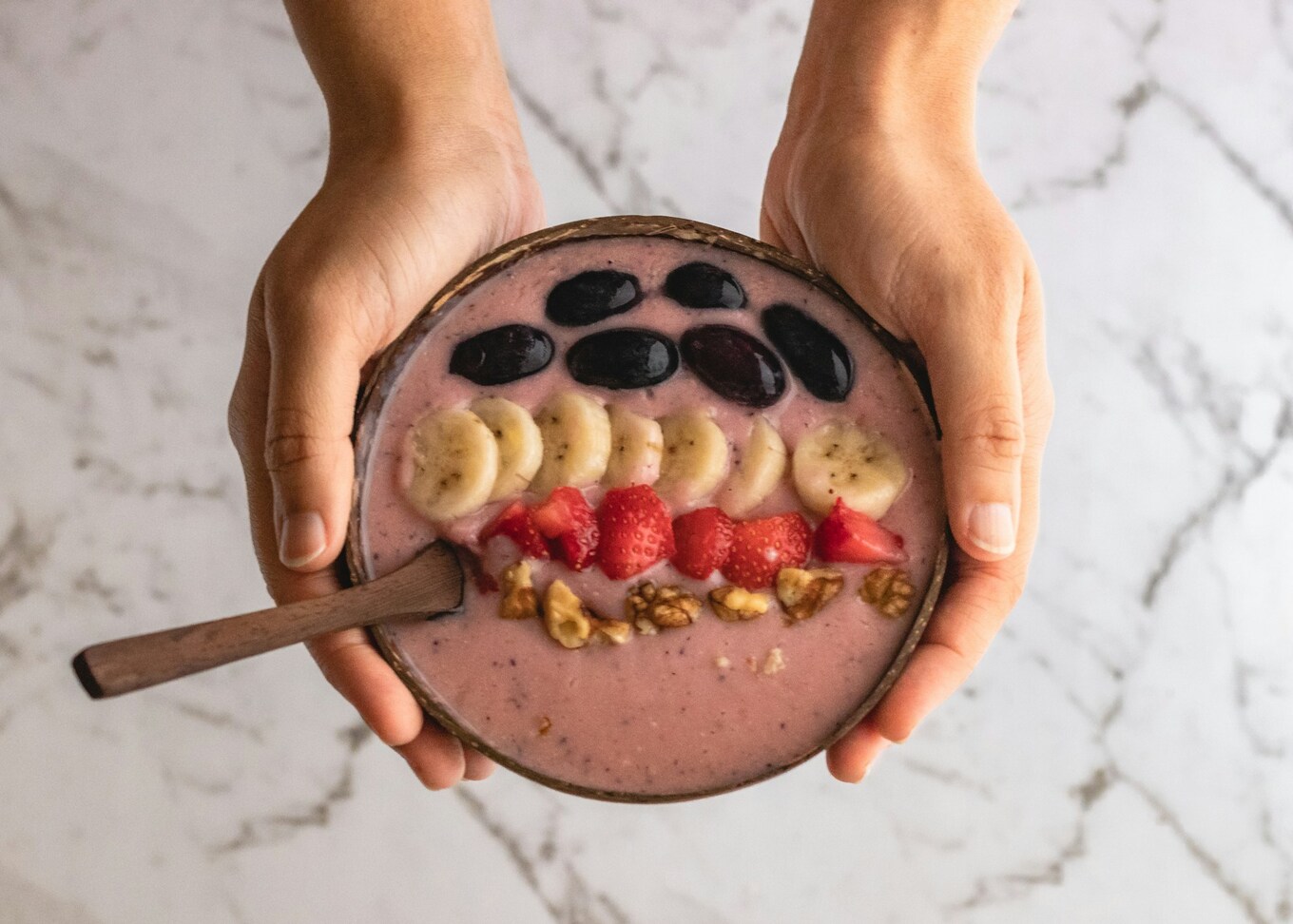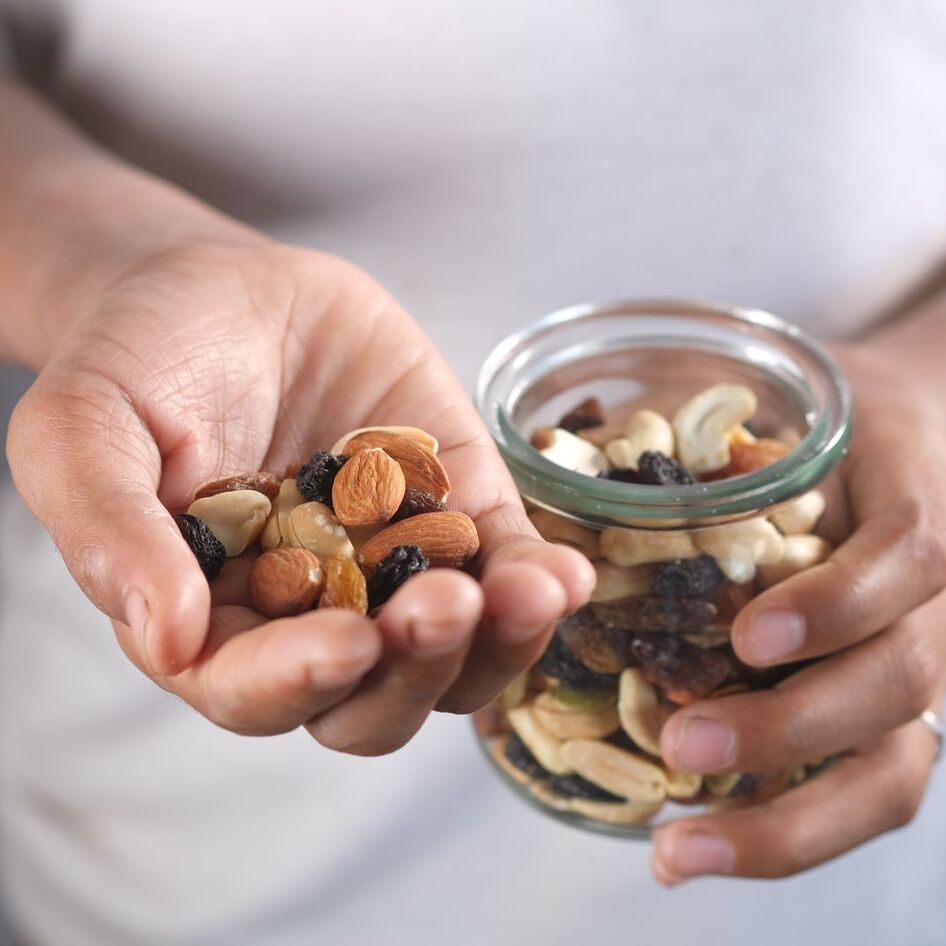A growing body of research has linked a plant-based, whole-food diet with better health. Multiple studies note it may help to reduce the risk of heart disease, certain types of cancer, and type 2 diabetes, for example. But eating plants may be able to do more than help to protect our physical health, it could, potentially, have a big impact on our mental health, too. Below, we take a closer look at the research that links certain plant-based whole foods with a reduced risk of depression, anxiety, and stress, as well as improved concentration, memory, and focus. Because when we talk about health, it’s essential not to overlook how we feel, too.
Can a plant-based diet help with depression and anxiety?
Depression and anxiety are two of the most common mental health disorders in the US. Research suggests that more than 40 million adults are currently living with an anxiety disorder, while depression is thought to impact more than eight percent of the adult US population each year.
Before we get into the research around plant-based whole foods, it’s essential to note that while a plant-based diet may certainly be beneficial for mental health, it should not be considered a substitute for professional medical treatment for depression or anxiety. If you are experiencing mental health concerns, consider consulting with a healthcare provider for appropriate diagnosis and treatment.
That said, research does demonstrate that the way we eat can play a huge role in the way we feel mentally. Eating high amounts of ultra-processed foods with artificial sweeteners may increase the risk of developing depression, according to one study published last year by Harvard T.H. Chan School of Public Health. “Experimental studies have shown that artificial sweeteners may trigger the transmission of particular signaling molecules in the brain that are important for mood,” the authors explained.
 Unsplash
Unsplash
However, eating more whole foods may decrease the risk. Another study published in 2023 in the journal Clinical Nutrition suggested that consuming one handful of nuts every day may reduce the risk of depression by 17 percent. This followed from separate research in 2022 that suggested a handful of walnuts, specifically, each day could help reduce stress and anxiety. This could be due to the presence of an amino acid called tryptophan, which the brain uses to make the mood-stabilizing hormone serotonin.
Other plant-based foods that contain tryptophan include seeds, legumes, tofu, whole grains, and bananas.
Another study, published in 2021 in the Journal of Affective Disorders, suggested that people who eat mushrooms regularly may have a lower risk of developing depression. “Mushrooms are the highest dietary source of the amino acid ergothioneine—an anti-inflammatory which cannot be synthesized by humans,” lead researcher Djibril Ba said in a statement. “Having high levels of this may lower the risk of oxidative stress, which could also reduce the symptoms of depression.”
Anti-inflammatory foods, like tomatoes, oranges, and olive oil may help your body to recover from stressful periods, too. “Because stress can increase cortisol and elevated levels of cortisol can cause inflammation, foods that decrease inflammation are ideal,” Rhyan Geiger, RDN and owner of Phoenix Vegan Dietitian, told VegNews. “Food rich in color, like berries and sweet potatoes are a good source of antioxidants to reduce inflammation.”
Some research has even found that plant-based foods may help to alleviate the symptoms of severe distress, as seen in patients with post-traumatic stress disorder, for example.
Plant-based food and brain health
Plant-based whole foods aren’t just associated with reducing stress, anxiety, and depression. They could also help to improve your overall brain health and function, too, and even support focus and reduce cognitive decline.
In 2023, for example, one study published in the journal eLife found that a plant-forward Mediterranean diet may help to maintain brain health, and even lead to a reduction in brain age. Another study, conducted by the Virginia Tech Carilion School of Medicine, noted that antioxidants found in colorful plant-based foods may reduce the risk of Alzheimer’s disease and dementia.
“This study, for the first time, demonstrates deficits in important dietary antioxidants in Alzheimer’s brains,” C. Kathleen Dorey, a professor in the Department of Basic Science Education at the medical school, said in a statement at the time.
 Unsplash
Unsplash
Research has also found a link between consuming a plant-based diet during midlife and slower cognitive decline. One study, led by the NYU Grossman School of Medicine, noted that a diet rich in plants could mean that women are 17-percent less likely to experience cognitive decline in later life. And children could benefit, too. In July 2023, research suggested that the plant-forward Mediterranean-DASH Intervention for Neurodegenerative Delay (MIND) diet could potentially boost cognitive development in children, and this could impact their chances of academic success.
Plants are not a magic cure for anxiety, depression, PTSD, or dementia, but there is no doubt that an abundance of research links whole foods with better mental health, regardless of age. If you want to learn more about healthy plant-based eating, you can find our guide to a whole food, plant-based diet here.
For more on plant-based diets and health, read:
JUMP TO ... Latest News | Recipes | Guides | Health | Shop









